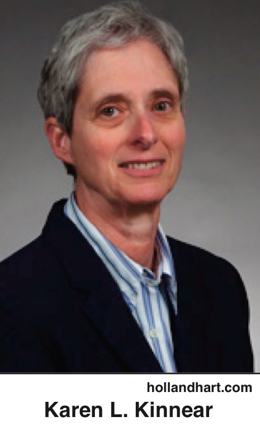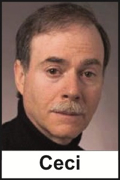Rascals case in brief
In the beginning, in 1989, more than 90 children at the Little Rascals Day Care Center in Edenton, North Carolina, accused a total of 20 adults with 429 instances of sexual abuse over a three-year period. It may have all begun with one parent’s complaint about punishment given her child.
Among the alleged perpetrators: the sheriff and mayor. But prosecutors would charge only Robin Byrum, Darlene Harris, Elizabeth “Betsy” Kelly, Robert “Bob” Kelly, Willard Scott Privott, Shelley Stone and Dawn Wilson – the Edenton 7.
Along with sodomy and beatings, allegations included a baby killed with a handgun, a child being hung upside down from a tree and being set on fire and countless other fantastic incidents involving spaceships, hot air balloons, pirate ships and trained sharks.
By the time prosecutors dropped the last charges in 1997, Little Rascals had become North Carolina’s longest and most costly criminal trial. Prosecutors kept defendants jailed in hopes at least one would turn against their supposed co-conspirators. Remarkably, none did. Another shameful record: Five defendants had to wait longer to face their accusers in court than anyone else in North Carolina history.
Between 1991 and 1997, Ofra Bikel produced three extraordinary episodes on the Little Rascals case for the PBS series “Frontline.” Although “Innocence Lost” did not deter prosecutors, it exposed their tactics and fostered nationwide skepticism and dismay.
With each passing year, the absurdity of the Little Rascals charges has become more obvious. But no admission of error has ever come from prosecutors, police, interviewers or parents. This site is devoted to the issues raised by this case.
On Facebook
Click for earlier Facebook posts archived on this site
Click to go to
Today’s random selection from the Little Rascals Day Care archives….
Click for earlier Facebook posts archived on this site
Click to go to
Today’s random selection from the Little Rascals Day Care archives….
Just what McMartin case needed: More hysteria!
 Nov. 4, 2015
Nov. 4, 2015
“(Psychiatrist Roland) Summit praised the hysteria-induced news media hype and community gossip (about the McMartin Preschool case) as a public service: Without that type and extent of press coverage, the researchers and other professionals would not be able to gather this information and would be trapped by old myths about child sexual abuse.
“Summit complained that investigators were limiting the ability of parents to cope by discouraging them from meeting and discussing the case. The community’s priority, he explained, should be to support the children. Hundreds of children had escaped sexual assault, he claimed, because of the publicity about the McMartin case.”
– From “Childhood Sexual Abuse: A Reference Handbook” by Karen L. Kinnear (2007)
The “satanic ritual abuse” day-care myth had no more enthusiastic – and effective – pitchman than Roland Summit, who conjured up the Child Sexual Abuse Accommodation Syndrome, who spread the gospel as far as New Zealand and who never ever gave up on the existence of the McMartin tunnels.
Although Summit himself never made it to Edenton, his ill-conceived cosmology arrived full-blown.
Child sex-abuse workshops work their mischief, no matter where

Gilbert
Feb. 16, 2018
“Eighteen years ago this month, Peter Ellis left prison. He ought never to have been there in the first place.
“[In 1993] Ellis was convicted of child abuse at the Christchurch Civic Crèche. It remains one of New Zealand’s most controversial cases, and one [New Zealand’s] proposed Criminal Cases Review Commission would do well to address.
“If all the allegations were to be believed, Ellis was involved in making children dance naked while some were placed in an oven or suspended in a cage. Others were buried alive, and one child was forced to kill another. One unfortunate lad was turned into a frog and a cat. Needless to say the evidence for these events was not strong…”
– From “Peter Ellis martyr to deranged prejudice” by Jarrod Gilbert in the New Zealand Herald (Feb. 8)
The first allegations against Peter Ellis occurred shortly after a nearby Ritual Abuse Workshop. What a coincidence – the first allegations against Bob Kelly occurred shortly after a
nearby day-care sex abuse seminar….
![]()
Leading questions, not spontaneity, marked interviews
 May 4, 2012
May 4, 2012
“Written reports that contain statements such as ‘The child said that Mr. Bob told them secrets’ are meaningless.
“We need to know whether this was a spontaneous remark, whether this was prompted by an open-ended question (e.g., “What did Mr. Bob tell you?”), or whether this is merely the interviewer’s memory of the gist of a conversation in which the interviewer asked, ‘Did Mr. Bob ask you to keep secrets?’ and the child reluctantly may have replied, ‘Yes.’
“Some summaries of the interviews are written in such a way as to make one believe that children made spontaneous and detailed statements about sexual abuse. However in the few instances where we have transcripts of other interviews, it is clear that the child only responded ‘yes’ or ‘no’ to a barrage of leading questions.”
– From “Jeopardy in the Courtroom: A Scientific Analysis of Children’s
Testimony” by Stephen J. Ceci and Maggie Bruck (1995)
Prosecutors couldn’t buy off ‘depraved’ defendants
Nov. 16, 2011
“The Little Rascals defendants never wavered in their contention that the allegations were untrue. Not one testified against the other, even though prosecutors commonly offer leniency to accused people in exchange for damning testimony.
“If the defendants were so depraved that they in fact sexually abused small children wholesale, how is it that none was tempted to ‘tell all’ to save his or her hide?”
– From an editorial in the Norfolk Virginian-Pilot (June 2, 1997)











0 CommentsComment on Facebook